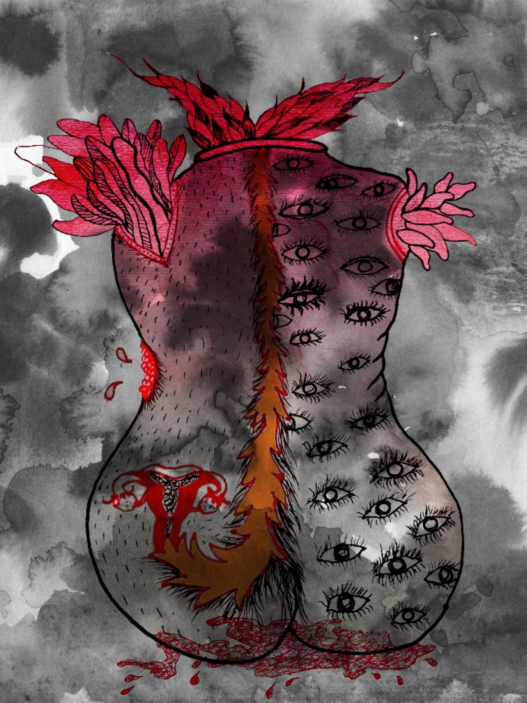Introduction
Intimate Partner Violence (IPV) is a widespread issue that affects individuals across all genders, sexual orientations, and backgrounds. Although much attention has been devoted to the experiences of cisgender heterosexual individuals, it is essential to recognize that certain forms of abuse can be distinct for specific groups, such as asexual men, women, and transgender individuals. This article explores the unique forms of abuse faced by asexual victims, highlights the challenges they encounter, and offers recommendations for support.
Understanding Asexuality and IPV
Asexuality is a sexual orientation defined by a lack of sexual attraction to any gender. While asexual individuals may still engage in romantic, emotional, or affectionate relationships, their absence of sexual desire can make them vulnerable to forms of abuse that differ from those experienced by sexual individuals. Although anyone can be a victim of IPV, asexual individuals often face distinctive dynamics due to their orientation.
“Life isn’t about waiting for the storm to pass; it’s about learning to dance in the rain and finding joy in the midst of life’s challenges.”
Vivian Greene
Forms of Abuse Unique to Asexual Individuals
Asexual individuals, who experience little or no sexual attraction to others, may encounter unique forms of abuse within their intimate relationships. These forms of abuse often arise from misunderstandings, ignorance, or a lack of respect for their asexuality. Key aspects to consider include:
“Corrective” Rape:
“Corrective” rape refers to a deeply distressing phenomenon where individuals, particularly women and LGBTQ+ individuals, are subjected to sexual assault in an attempt to force them to conform to societal norms around sexuality and gender identity. Asexual victims may be assaulted with the misguided belief that such acts will “cure” them of their asexuality, coercing them to embrace a sexual identity they do not naturally possess.
Invalidation and Gaslighting: Asexual individuals may face invalidation of their orientation, with partners dismissing their asexuality as a phase or suggesting they simply need to “discover” their sexuality. This can lead to confusion, self-doubt, and isolation.
Pressure for Sexual Activity: Asexual individuals might be coerced or pressured into sexual activities by partners who disregard their lack of sexual attraction. This pressure can result in discomfort, violation, and a feeling of being exploited.
Mockery, Mental, and Emotional Abuse:
Asexual individuals often endure invalidating comments, ridicule, and microaggressions from those who fail to accept or understand their orientation. Remarks like “You just haven’t found the right person yet” or “You’re missing out on so much” trivialize an asexual person’s identity and contribute to emotional abuse. These dismissive comments foster isolation, shame, and alienation, further eroding the victim’s confidence and mental well-being, often leading to emotional distress, anxiety, and depression.
Isolation and Social Exclusion: Abusive partners may isolate asexual individuals from their support networks by minimizing the importance of their friendships. This isolation deepens dependence on the abusive partner and limits access to help.
Unique Data Insights
Recent studies reveal that asexual individuals, regardless of gender identity, are disproportionately affected by intimate partner sexual assault. Data suggests higher rates of invalidation, pressure for sexual activity, and emotional abuse within relationships, which may heighten the risk of intimate partner sexual assault. This underscores the importance of acknowledging the specific challenges faced by asexual individuals in abusive relationships.
Breaking Down the Research
Research into the experiences of asexual individuals in abusive relationships has uncovered alarming findings. A significant percentage of asexual victims reported repeated incidents of sexual assault, often involving non-consensual penetration. Disturbingly, many victims experienced a second assault within a month of the initial incident.
The study also highlighted serious health issues related to intimate partner sexual assault, including vaginal and rectal bleeding, sexually transmitted diseases, and pelvic inflammatory disease. These health problems were often linked to the repeated sexual assaults endured by asexual individuals.
Addressing the Issue
To effectively address the unique forms of abuse faced by asexual individuals, it is crucial to:
PTSD and Suicidal Ideation: Asexual victims should receive information on the symptoms of PTSD and suicidal ideation, along with referrals for relevant mental health services. Acknowledging the severe mental health impacts of IPV is essential to their recovery.
Education and Training: Professionals in justice, health, and social services should receive training on the experiences of asexual individuals and the specific dynamics of IPV in their relationships. This will improve their ability to recognize and respond to the unique forms of abuse asexual victims face.
Awareness and Safety Planning: Support providers should assess the frequency and type of abuse experienced by asexual individuals and offer guidance on safety planning, mental health support, and counseling. Referrals to appropriate resources can help mitigate the heightened risks they face.
PTSD and Suicidal Ideation:
Asexual victims should receive information on the symptoms of PTSD and suicidal ideation, along with referrals for relevant mental health services. Acknowledging the severe mental health impacts of IPV is essential to their recovery.
Conclusion
It is imperative for society to recognize and address the unique forms of abuse that asexual individuals may encounter in intimate relationships. By understanding their experiences, raising awareness, and providing targeted support, we can foster a safer and more inclusive environment for all, irrespective of sexual orientation or gender identity. Efforts to combat intimate partner violence must extend beyond traditional narratives to encompass the diverse experiences and challenges faced by all members of society.










